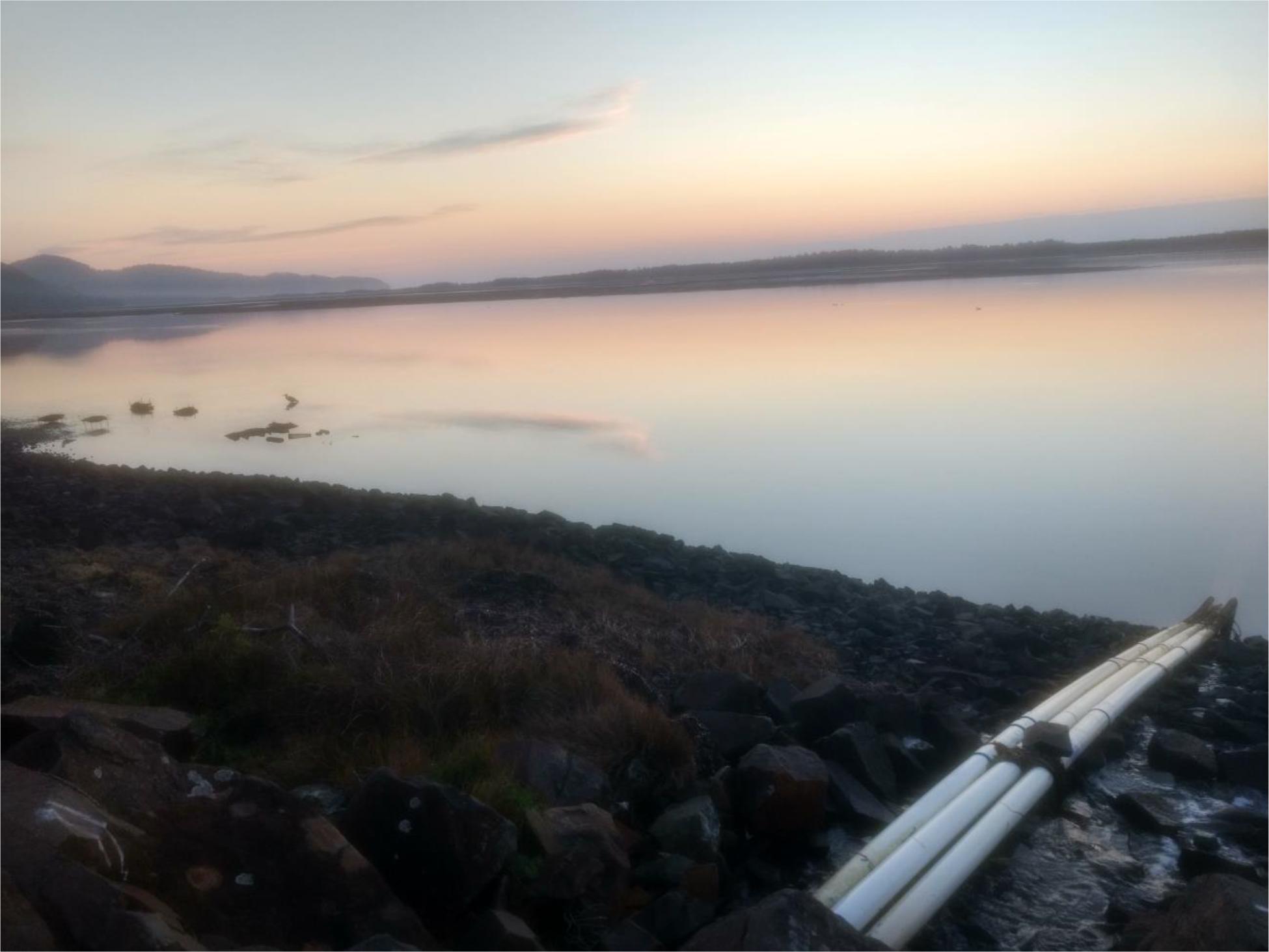
Adapting aquaculture to changing water chemistry in the Pacific Northwest
Despite significant advancements in the buffering of seawater to offset the impacts of ocean acidification, persistent issues with water quality continue to stifle optimal production levels at major oyster hatcheries in Oregon and Washington. Generally manifesting during late summer amongst later-stage larvae, this issue has presented an obstacle in growing oyster aquaculture, particularly in relation to seed supply.
In response, we've initiated a project aimed at isolating the water-quality issues that correlate with these drops in production. Our strategy involved augmenting our current high-frequency data collection focus by employing additional monitoring equipment within a hatchery and executing two field campaigns specifically geared towards targeted measurements (including nutrients, metals, inorganic carbon, oxygen demand, and sulfide) of water as it circulates through the hatchery environment.
We found several noteworthy results from our research. Tidal effects present a substantial risk of hatchery failure whereas metabolic effects witnessed within tanks indicated large nitrogen increments which call for cautious handling considering potential interactions with metals and buffering slurry. Additionally, there's reason to believe that the amalgamation of these externally predictable occurrences and internal tank effects can escalate production challenges.
Our findings have since been integrated into a Best Management Practices (BMP) guide to advise oyster hatcheries and growers on managing water quality and ocean acidification implications. Already, some impacts of our efforts are discernible - numerous study hatcheries have incorporated oxygen concentrators in their repertoire to counter possible oxygen consumption dilemmas while cost-efficient strategies to manage low-tide issues have been put forward. The publication of the BMP guide steers hatcheries into sustainable practices that promise increased yields.
Project Summary
| Duration: | 4 years |
|---|---|
| Funded Date: | 09/01/2012 |
| Funding level: | $318,627 |
| PI: | |
| Advisors: | |
| Location: | Oregon - OR, Washington - WA |
| Species: | Oysters |
| Topics: | Hatchery, Water quality - fresh and marine |
